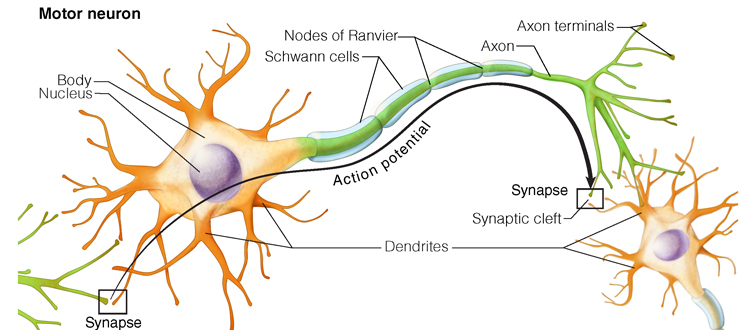Motor Neuron Disease (MND) is a rare but debilitating condition that affects the nerve cells responsible for controlling voluntary muscles. While it is not as commonly discussed as other neurological conditions, MND has a profound impact on individuals and their families. In this blog, we will explore various aspects of MND, from its symptoms and causes to treatment options and support systems available in Bangladesh.
Understanding Motor Neuron Disease: A Brief Overview
Motor Neuron Disease is a group of progressive neurological disorders primarily affecting motor neurons, the brain, and spinal cord cells responsible for sending signals to muscles. As these neurons degenerate, muscle function weakens, leading to challenges in mobility, communication, and other daily activities. The most common form of MND is Amyotrophic Lateral Sclerosis (ALS).
Key Symptoms to Recognize Early Signs
Recognizing early symptoms can be crucial for timely intervention. Some common symptoms include:
- Muscle weakness, particularly in the arms or legs
- Difficulty speaking or swallowing
- Twitching and cramping of muscles
- Loss of balance and coordination
- Progressive weight loss and fatigue
If you or a loved one experiences these symptoms, it is essential to consult a neurologist promptly.
Leading Causes and Risk Factors in Bangladesh
The exact causes of MND remain unclear, but several factors may contribute, including:
- Genetics: Family history plays a significant role in some cases.
- Environmental Factors: Exposure to toxins, chemicals, or heavy metals may increase risks.
- Age and Gender: MND is more common in individuals aged 50-70, with men being slightly more at risk.
In Bangladesh, occupational hazards and limited awareness can also contribute to the onset of the disease.
Diagnosing Motor Neuron Disease: What to Expect
Diagnosing MND involves a comprehensive evaluation, including:
- Neurological examinations to assess reflexes and muscle strength
- Electromyography (EMG) to measure electrical activity in muscles
- Blood tests to rule out other conditions
- Imaging scans like MRI to detect abnormalities in the brain or spinal cord
Early diagnosis helps manage symptoms more effectively and plan for long-term care.
Effective Treatments Available in BD
While there is no cure for MND, several treatments can slow its progression and improve quality of life:
- Medications: Drugs like Riluzole can reduce the damage to motor neurons.
- Physical Therapy: To maintain muscle strength and flexibility.
- Speech Therapy: For individuals experiencing communication challenges.
- Assistive Devices: Wheelchairs, braces, and communication aids can enhance independence.
Leading physiotherapy centers in Bangladesh, like Physio Zone, provide personalized treatment plans for MND patients.
Lifestyle Adjustments for Patients and Families
Adapting to MND involves lifestyle changes to accommodate physical limitations. These include:
- Installing mobility aids at home
- Preparing nutrient-rich, easy-to-swallow meals
- Establishing a daily exercise routine with a physiotherapist’s guidance
Family members also need emotional support and resources to manage caregiving responsibilities.
Support Systems and Resources in Bangladesh
Support groups and organizations in Bangladesh play a crucial role in helping MND patients and their families. These include:
- Neurological care centers offering specialized services
- Online and offline support groups providing emotional and practical assistance
- Non-governmental organizations (NGOs) working to raise awareness and offer financial aid
Research and Advances in Motor Neuron Disease
Research into MND is ongoing, with promising advancements in areas such as:
- Stem cell therapy for regenerating damaged neurons
- Gene therapy targeting hereditary cases of MND
- Improved medications aimed at slowing disease progression
Bangladesh is gradually adopting global research initiatives, bringing hope to patients.
Coping Mechanisms for Patients and Caregivers
Living with MND requires robust coping strategies, including:
- Mindfulness practices and counseling for mental well-being
- Regular social interaction to combat isolation
- Education on the disease to empower caregivers
Support groups can also be invaluable for sharing experiences and solutions.
Where to Seek Specialized Care in BD
Patients can contact neurologists and rehabilitation centers across Bangladesh for expert care. Institutions like Physio Zone in Dhaka offer specialized treatment plans tailored to MND patients’ needs. Early intervention and consistent care can significantly enhance the quality of life.
Conclusion
Motor Neuron Disease presents significant challenges, but with early diagnosis, effective treatments, and robust support systems, patients and caregivers in Bangladesh can find ways to navigate this condition. Awareness and community support are key to ensuring that individuals affected by MND live with dignity and hope.

